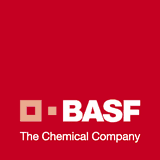BASF Wins Inaugural Altair Enlighten Award for Innovation in Automotive Vehicle Light-Weighting
 |
ArcelorMittal and Plasan Carbon Composites joint runners-up
TROY, MI--Aug. 5, 2013: Altair today announced that international chemical company BASF Corporation has won the inaugural Altair Enlighten Award competition for the development of its thermoplastic composite front seat pan (by GM Opel, BASF, SeaTcon AG, SedisTec UG, Reinert Kunststofftechnik, Maier Formenbau). The award, presented in collaboration with the Center for Automotive Research (CAR), is the automotive industry's first award program created specifically to acknowledge innovations in vehicle light-weighting. BASF was presented with the award during the opening session of the 2013 CAR Management Briefing Seminars (MBS), in Traverse City, Mich. First runner up was shared equally by ArcelorMittal for its industry first hot stamped door ring (by Honda, ArcelorMittal and MAGNA - Cosma International), and Plasan for its carbon fibre roof (by Chrysler FIAT, Plasan Carbon Composites).
BASF, one of 10 nominees who competed for the Enlighten Award, impressed the judging committee with its composite seat pan, manufactured for use in the OPEL Astra OPC model passenger car. Composite materials are increasingly being used to replace traditional metallic parts in automotive vehicles due to their lightweight properties; however, they present new, often complex design challenges and have traditionally been costly alternatives reserved for premium cars.
The majority of seat pans are made from multiple stamped steel components which are welded together and must meet strict crash performance targets. BASF aimed to overcome these challenges using two special Ultramid Polyamide (PA6) injection molding grades for the Opel Astra OPC seat pan: an unreinforced grade acts as the material in which the glass fiber fabric is embedded, an impact-modified, short glass fiber-reinforced Ultramid is used as over-molding material to achieve the necessary ribs and edges of the part by means of injection molding.
Given the high strength of the composite laminate, the wall thicknesses of the seat pan could be reduced using virtual simulation technology to identify where material could be removed without negative impact to performance, allowing the weight of the component to be lowered by 45 percent (1.5kg to 0.8kg) compared to the original design. This is the world's first serial front seat pan based on this manufacturing technology. The injection molding process and materials yield a cost neutral component with a reduced packaging space.
"We would like to congratulate BASF for winning the first Altair Enlighten Award," said David Mason, Vice President Global Automotive for Altair. "Composite materials offer many advantages to car makers looking for weight savings but bring with them their own engineering and design challenges. BASF has shown that virtual simulation technology can help meet these challenges and deliver lighter, more fuel efficient vehicles."
"Our committee had the opportunity to review ten very strong nominations all demonstrating a variety of solutions with great potential for lightweighting vehicles," said judging chair Dr. Jay Baron, President and CEO of CAR, and director of CAR's Coalition for Automotive Lightweighting Materials (CALM). "New fuel economy regulations remain a significant concern for vehicle manufacturers and the Enlighten Award has highlighted a wide range of innovative strategies being implemented by the industry."
The Altair Enlighten Award is intended to honor the greatest achievements in weight savings each year; to inspire interest from industry, engineering, policymakers, educators, students and the public; to create further competition for new ideas in the industry; and to provide an incentive to share technological advances.


